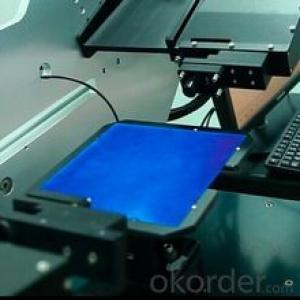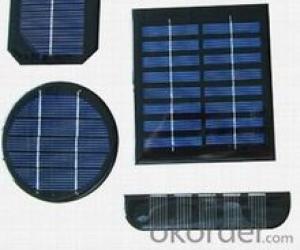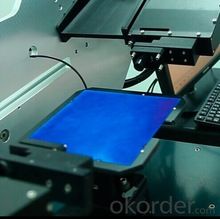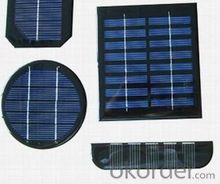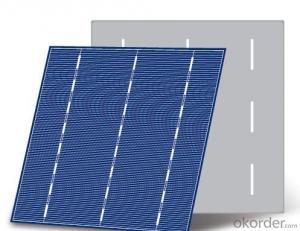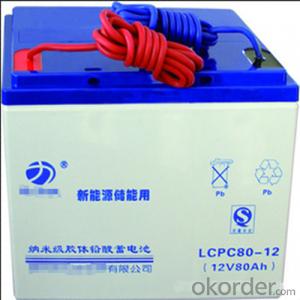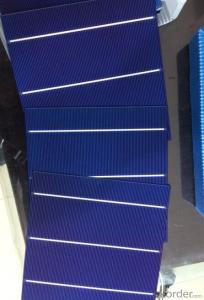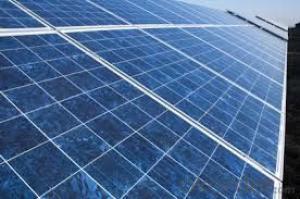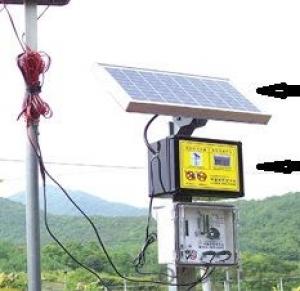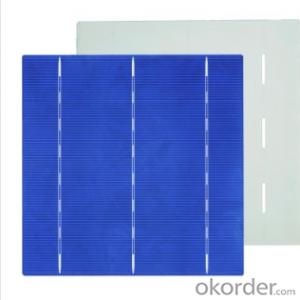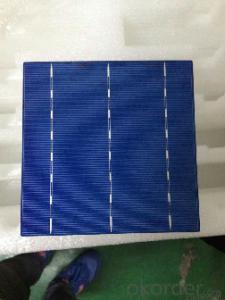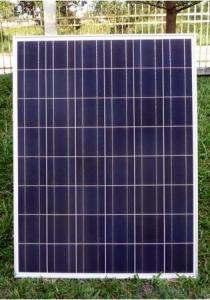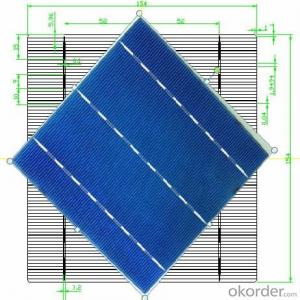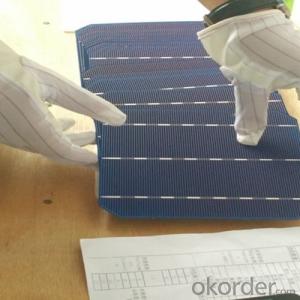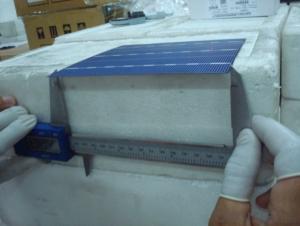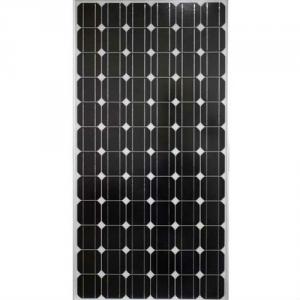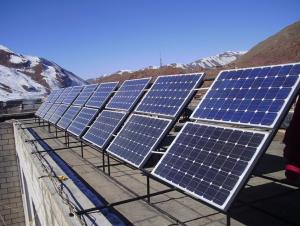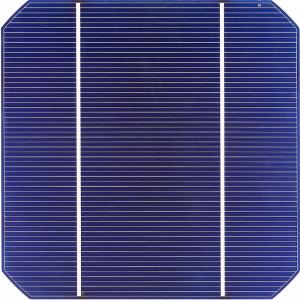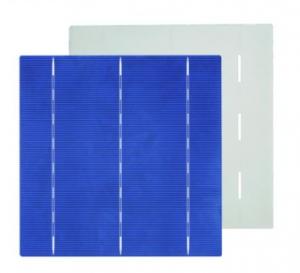Better Solar Cells:156x156mm Poly Solar Cell - High Efficiency CNBM PV Solar Cell Supplier
- Loading Port:
- Qingdao
- Payment Terms:
- TT OR LC
- Min Order Qty:
- 100 set
- Supply Capability:
- 300000 set/month
OKorder Service Pledge
OKorder Financial Service
You Might Also Like
Quick Details
| Place of Origin:china | Model Number: | TN-156P | Material: | Polycrystalline Silicon | |
| Size: | 156*156mm | Max. Power: | 4.53w | Efficiency: | 13.97~18.6 |
| Bus Bar: | 2/3 | Grade: | A/A-/B | Power Ppm(w): | 3.4w~4.53w |
Packaging & Delivery
| Packaging Detail: | Typical package for one carton contains 1,200 cells.The cells are sealed in cell box every 100pcs.Gross weight peri unit carton shall be around 17.1Kg. |
| Delivery Detail: | 1-3 days after payment |
6'' Low and High Efficiency Poly Solar Cell 156*156 mm
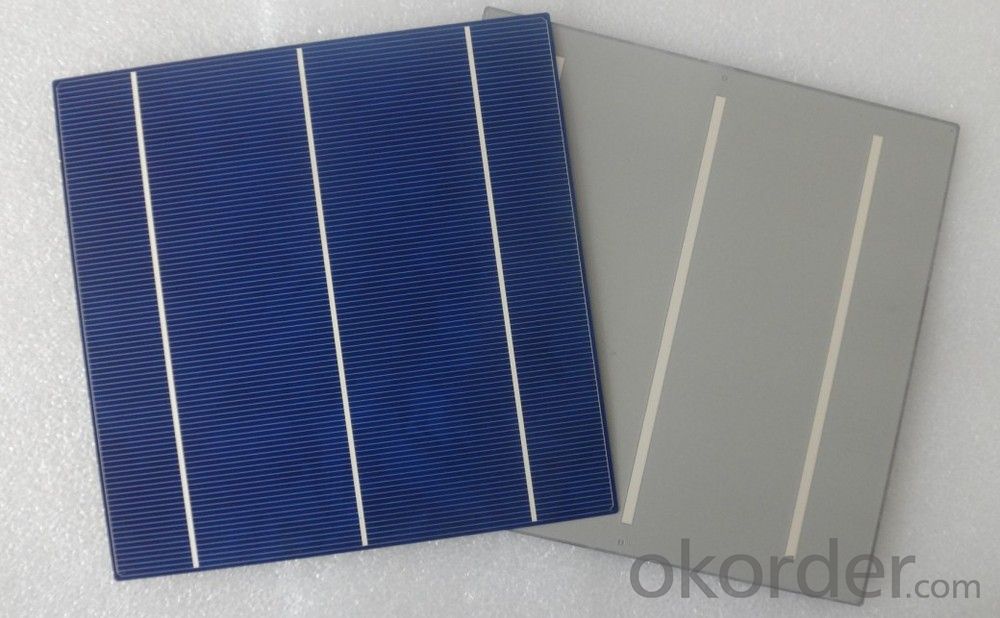
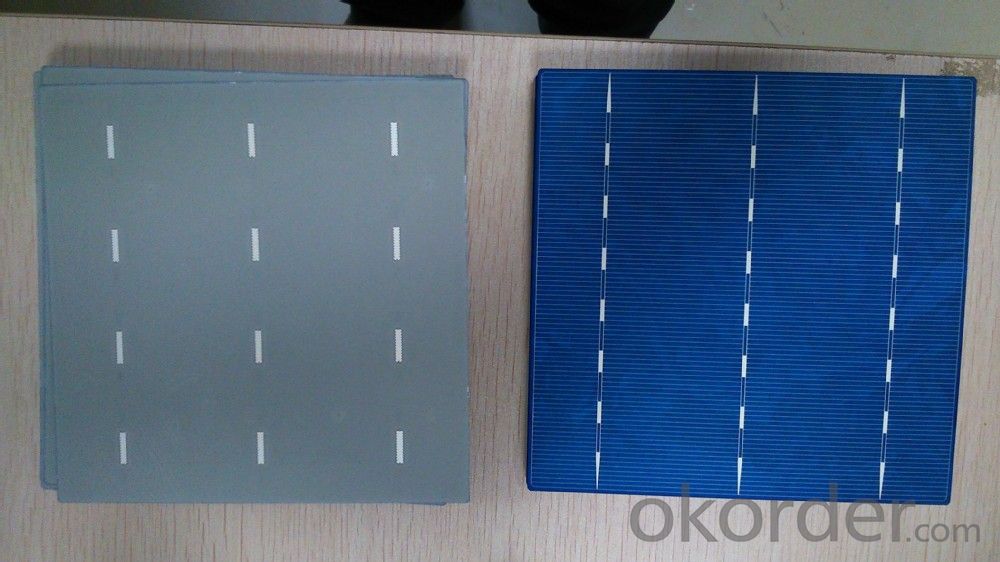
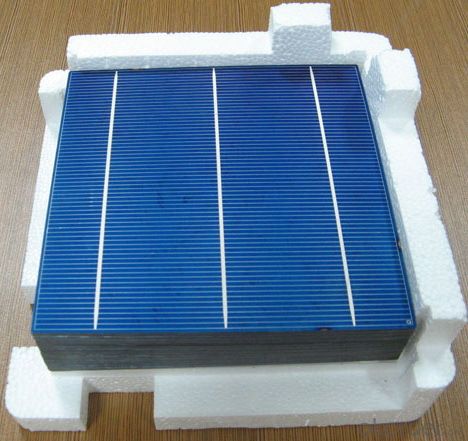
Our Advantage
Reason:
We enjoy exclusive channel to get solar cells at more competitive price from Sunpower,Neo solar,Motech,Gintechetc.
We signed long term purchase contract with our solar cell manufacturers,including but not limited to Neo solar,Motech,Gintech,AUO,then we can purchase unsorted solar cells in bulk from them and sort these unsorted solar cells into same efficiency,same pattern,same color by our own QA team. We call them Grade A-.
Quality :
These sorted solar cells have same electrical performance with Taiwan Grade A solar cells,only difference is the negligible superficial defect.
We can guarantee that they are better than grade A solar cells from tier 1 solar cell manufacturers in China mainland.
Price Comparison:
Efficiency 17.6, 2/3 Bus Bar Poly solar panel,
Taiwan Grade A price 0.31 USD/watt; Grade A- price 0.267~0.28 USD/watt
Product Description
1.Mechanical Properties :
Product Multi-crystalline silicon solar cell
Dimension 156 mm x 156 mm ± 0.5 mm
Thickness 200 μm ± 30 μm
Front 1.5 ± 0.1 mm busbar (silver)
Silicon nitride antireflection coating
Back 3.0 mm continuous soldering pads (silver)
Back surface field (aluminum)
2.Electrical Properties
Efficiency (%) Pmpp (W) Voc (V) Isc (A) Imin (A)
18.6 4.53 0.637 8.84 8.53
18.4 4.48 0.635 8.81 8.48
18.2 4.43 0.633 8.77 8.43
18.0 4.38 0.631 8.73 8.38
17.8 4.33 0.629 8.69 8.33
17.6 4.28 0.627 8.65 8.27
17.4 4.23 0.624 8.61 8.22
17.2 4.19 0.621 8.56 8.16
17.0 4.14 0.618 8.51 8.08
16.8 4.09 0.615 8.46 7.99
16.6 4.04 0.612 8.42 7.91
* Testing conditions: 1000 W/m2, AM 1.5, 25 °C, Tolerance: Efficiency ± 0.2% abs., Pmpp ±1.5% rel.
* Imin : at 0.5 V
3.Light Intensity Dependence
Intensity W/m2 Vmpp* Impp*
1000 1.00 1.00
800 0.99 0.80
600 0.99 0.60
400 0.97 0.40
200 0.94 0.20
4.Soldering Ability
Peel Strength: > 1.0 N/mm (Pull soldered ribbon from busbar in 5 mm/s of 180°)
Packaging & Shipping
1. Payment term: T/T in advance (W/U for sample order)
2. Lead time: It depends on your quantity. Usually we will send sample within 1-3 working days.
3. Shipping will be made via EMS, DHL, Fedex, UPS, Air, Sea etc. shipment

4. Others: If you have special specifications and requirements, we will do different offer as you required.
- Q: How are solar cells used in spacecraft?
- Solar cells are used in spacecraft to convert sunlight into electricity, providing a reliable and renewable source of power for various systems and instruments on board.
- Q: What factors affect the efficiency of solar cells?
- Several factors can affect the efficiency of solar cells, including the quality and purity of the materials used, the design and construction of the cells, the amount of sunlight received, the temperature, and any external shading or obstructions. Additionally, the angle and orientation of the solar panels, as well as the presence of dirt or dust on the surface, can also impact the efficiency of solar cells.
- Q: Can solar cells be used on vehicles?
- Yes, solar cells can be used on vehicles. They can be integrated into the design of vehicles to harness solar energy and convert it into electricity to power various components such as lights, air conditioning systems, and even electric motors in hybrid or electric vehicles. This helps reduce reliance on fossil fuels and makes vehicles more sustainable and environmentally friendly.
- Q: How do solar cells perform in low-light conditions?
- Solar cells perform less efficiently in low-light conditions compared to bright sunlight. The amount of electricity generated by solar cells is directly proportional to the intensity of light they receive. Therefore, in low-light conditions, such as during cloudy days or in shaded areas, solar cells produce less electricity. However, advancements in technology have improved the performance of solar cells in low-light conditions, enabling them to still generate some power even under these circumstances.
- Q: Can solar cells be used in commercial buildings?
- Yes, solar cells can be used in commercial buildings. In fact, many commercial buildings worldwide are increasingly incorporating solar panels to generate renewable energy and reduce their reliance on traditional power sources. This not only helps businesses save on electricity costs but also contributes to a more sustainable and environmentally friendly operation.
- Q: I bought a new poly solar cells, and the test result of the conversion efficiency is 16.8%, is it lower than usual?
- It depends on what kind os poly solar cell you are using, if it is 260 watt photovoltaic solar panel, 16.8% is a bit lower.
- Q: Can solar cells be used in educational institutions?
- Yes, solar cells can be used in educational institutions. They offer a hands-on approach to teaching students about renewable energy and the importance of sustainable practices. By installing solar panels on rooftops or in designated areas, educational institutions can generate clean energy, reduce their carbon footprint, and save on electricity costs. Additionally, incorporating solar cells into the curriculum allows students to understand the science, technology, and environmental aspects of solar energy, fostering a greater awareness and understanding of renewable energy sources.
- Q: Can solar cells be used for powering electric gates?
- Yes, solar cells can be used to power electric gates. Solar panels convert sunlight into electricity, which can be used to charge a battery or directly power the gate's motor. This allows the gate to operate without relying on the traditional power grid, making it more environmentally friendly and cost-effective in the long run.
- Q: How are solar cells installed?
- Solar cells are typically installed on rooftops or in open areas with maximum exposure to sunlight. The installation process involves mounting the solar panels onto a strong structure using racking systems, securing them in place. Electrical wiring is then connected between the panels, and an inverter is installed to convert the captured solar energy into usable electricity. Finally, the system is connected to the electrical grid or batteries, enabling the generated power to be used.
- Q: Can solar cells be used to power outdoor signage?
- Yes, solar cells can be used to power outdoor signage. Solar cells are designed to convert sunlight into electricity, making them an ideal choice for outdoor applications where access to traditional power sources may be limited. By harnessing solar energy, outdoor signage can operate efficiently and sustainably without relying on the electrical grid.
Send your message to us
Better Solar Cells:156x156mm Poly Solar Cell - High Efficiency CNBM PV Solar Cell Supplier
- Loading Port:
- Qingdao
- Payment Terms:
- TT OR LC
- Min Order Qty:
- 100 set
- Supply Capability:
- 300000 set/month
OKorder Service Pledge
OKorder Financial Service
Similar products
Hot products
Hot Searches
Related keywords
